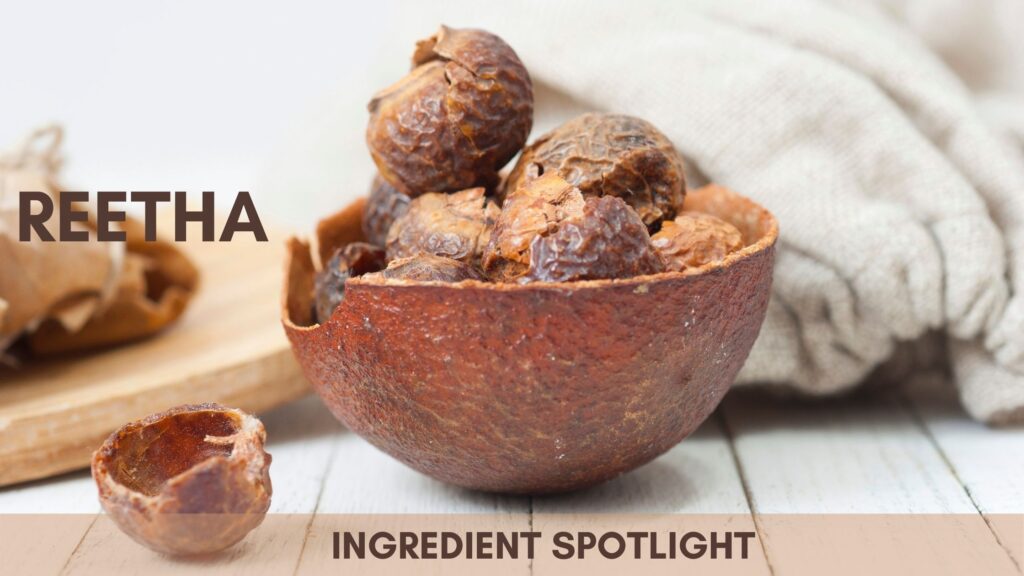Herbs
What are Soapnuts?
Reetha (Sapindus Mukorossi), also known as soapnut, soapberry, and washnut, is a dried fruit that comes from a tea bearing the same name. Also called as Arishtak in Ayurveda, Reetha is one of the most famous and versatile herbs in Ayurveda. It is a deciduous tree that is widely grown in tropical countries like India, China and Nepal. The fruit, bark and roots of the tree find usage in Ayurveda both internally and externally. The pulp of the fruit contains a high level of saponins that act as natural foaming agents.
Scientific Name – Sapindus mukorossi
Family – Sapindaceae
Origin – Tropical areas of India, China, and Nepal
Other Names – Ritha/Reetha/Aritha (Hindi), Kunkudukai (Telugu), Boondi Kottai (Tamil), Pasakkottamaram (Malayalam), Amtalakaayi (Kannada), ‘Ritha’ (Bengali), ‘Arithi’ (Gujarati), and ‘Rinthi’ (Marathi).
External uses
- The natural surfactant saponin in reetha plant offers foaming properties and soapy texture which helps in clearing dirt, dust and oil. Due to this, it is utilized for an assortment of purposes from personal care to home care and also jewellery care.
- The antibacterial and antifungal properties of Soapnut assist in treating scalp infections and ward off dandruff and lice.
- As per Ayurveda, it also helps to treat skin infections such as eczema, psoriasis and pimples due to its Tridosha property (Vatta Pitta Kaph balancing property). Soapnut decoction (Kadha) is also used as a wound cleanser as it accelerates wound healing and stops secondary infections.
- Because of its anti-inflammatory and anti-bacterial properties, it is also used to treat boils, scorpion bite and itching lesions.
Reetha is all-natural, hypoallergenic, eco-friendly, modest, and reusable. Earthy Sapo has used Reetha in its following products:

